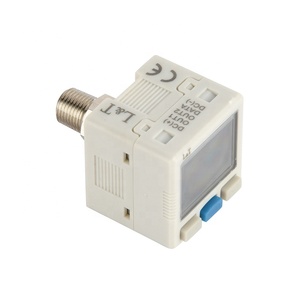Understanding the DPF Differential Pressure Sensor
The DPF differential pressure sensor is an essential component in modern diesel engines equipped with a diesel particulate filter (DPF). It plays a pivotal role in monitoring the pressure differential across the DPF, ensuring optimal engine performance and emissions control. By providing real-time data, this sensor helps in managing the regeneration processes that keep the DPF functioning efficiently.
Types of DPF Differential Pressure Sensors
DPF differential pressure sensors come in various types, each designed to meet specific requirements of different automotive systems. Understanding the types can assist manufacturers and mechanics in selecting the right sensor for their needs.
- Analog Differential Pressure Sensors: These sensors provide continuous voltage or current output proportional to the pressure differential measured.
- Digital Differential Pressure Sensors: Using advanced technology, these sensors offer precise digital outputs, enhancing accuracy in monitoring.
- Absolute Pressure Sensors: These measure the pressure relative to a perfect vacuum, providing more detailed data for precise calibration.
- Relative Pressure Sensors: Suitable for applications where pressure needs to be monitored against atmospheric pressure, making them versatile for various automotive systems.
Applications of DPF Differential Pressure Sensors
DPF differential pressure sensors have a wide range of applications across various vehicle types and industries, specifically targeting emissions control and engine efficiency:
- Diesel Engines: Primarily used in diesel engines to monitor DPF health and performance, assisting in effective exhaust treatment.
- Heavy-Duty Vehicles: Essential in trucks and construction vehicles where DPF systems are fundamental for meeting emissions regulations.
- Light-Duty Vehicles: Increasing adoption in passenger vehicles, aligning with stringent emissions standards.
- Waste Management Equipment: Used in vehicles that are frequently idling, needing efficient DPF operation to minimize emissions.
Features and Advantages of the DPF Differential Pressure Sensor
Investing in a high-quality DPF differential pressure sensor delivers numerous features and advantages that enhance overall vehicle performance:
- High Accuracy: These sensors provide real-time pressure readings, crucial for maintaining DPF function and longevity.
- Durability: Designed to withstand harsh environmental conditions, including high temperatures and vibrations, ensuring long service life.
- Ease of Installation: Generally designed for straightforward installation, reducing downtime during maintenance or replacement.
- Improved Fuel Efficiency: By continuously monitoring DPF conditions, these sensors help in optimizing fuel consumption and reducing emissions.
- Alerts and Diagnostics: Many modern sensors are equipped with diagnostic capabilities, alerting operators to potential issues before they escalate into costly repairs.



















































































































































































